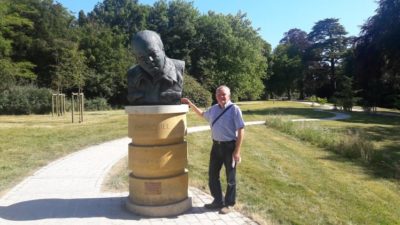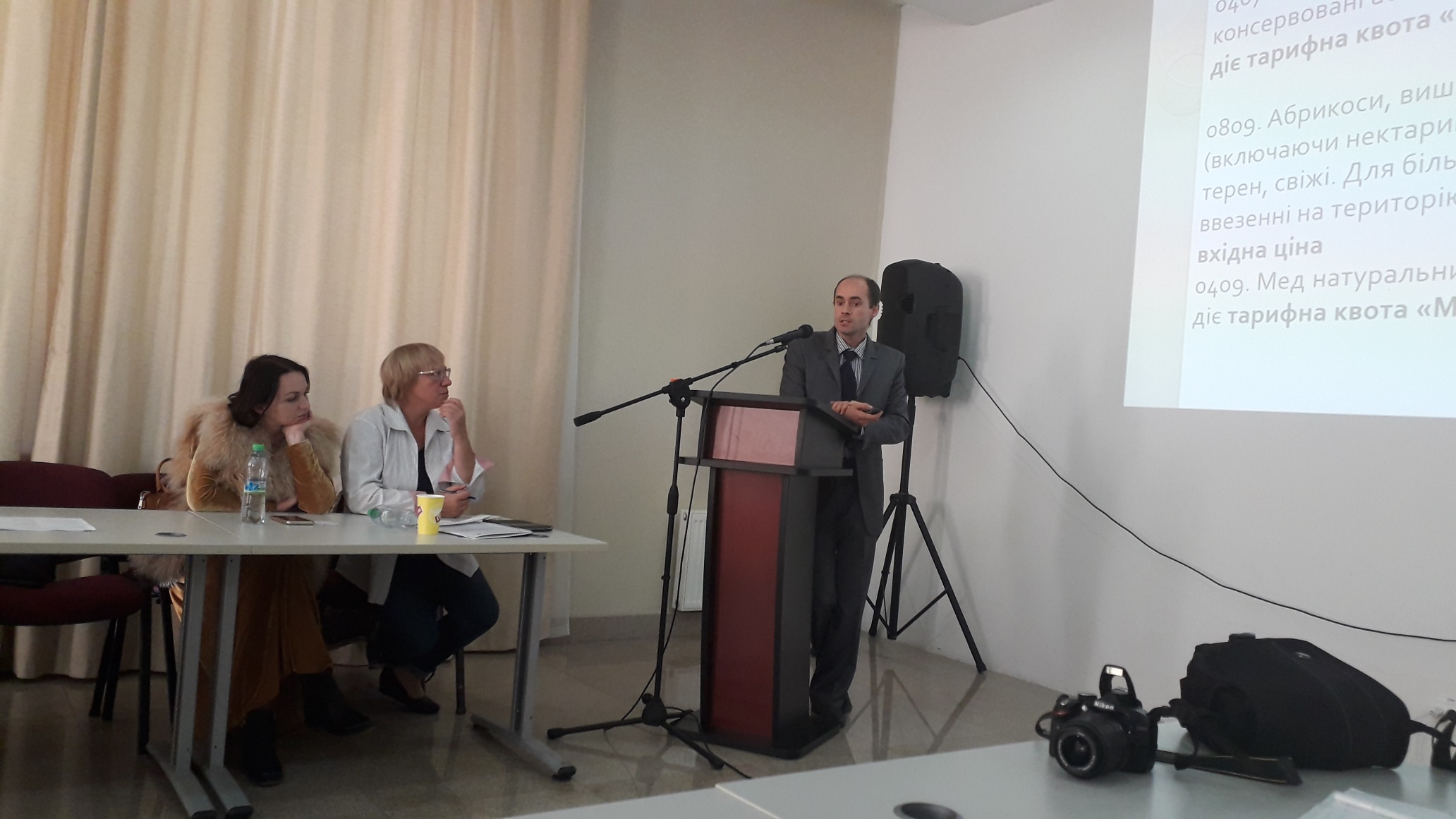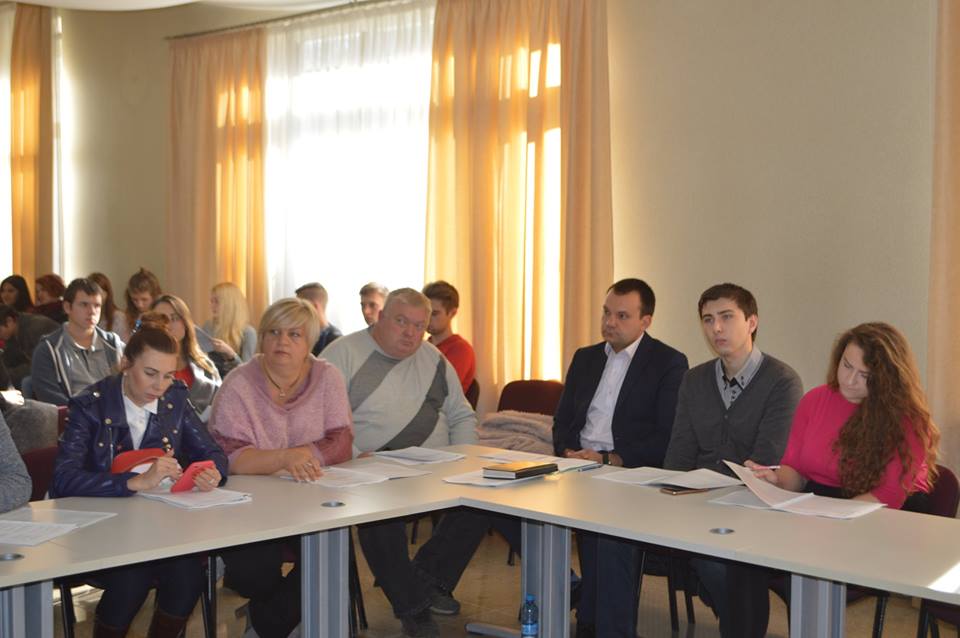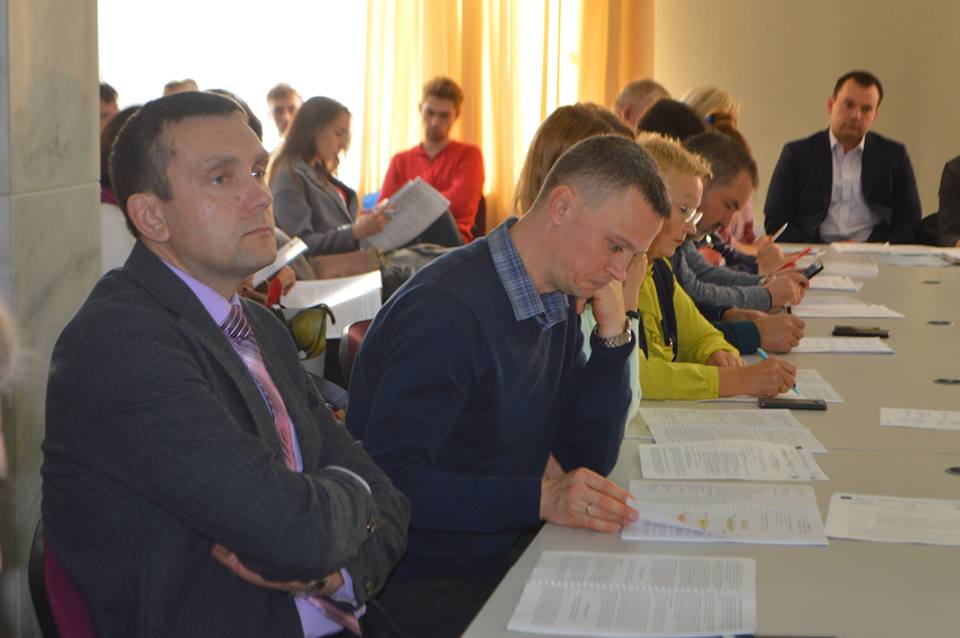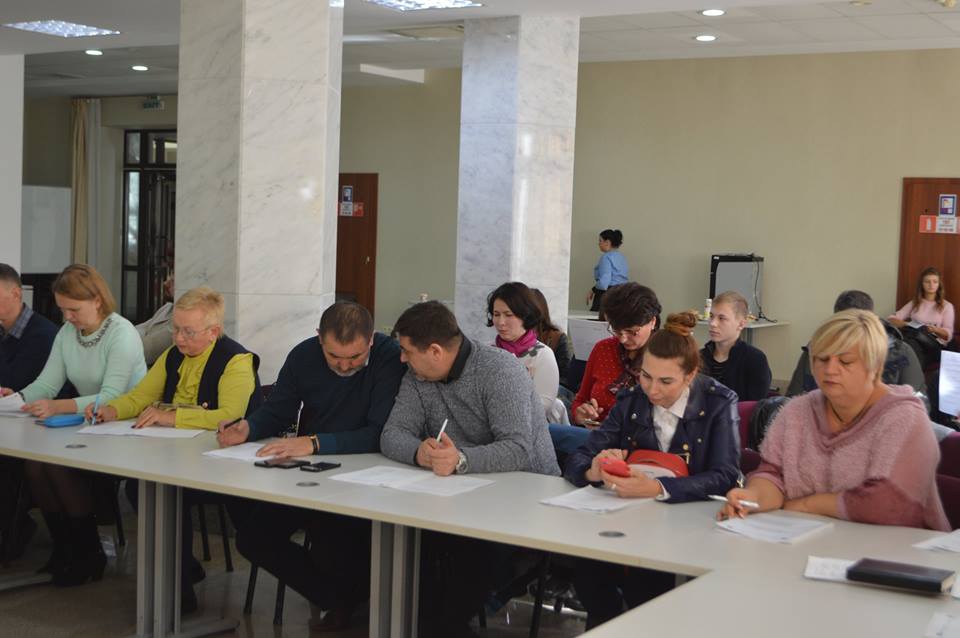| Regional debates on rural development in the context of the EU Association Agreement |
|
On October 12, 2018, at the Congress Center of Sumy State University, the Analytical Center of the Agrarian Union of Ukraine, has held a debate on the readiness, tasks and ways of implementing the Association Agreement by the relevant units of regional state administrations, local self-government bodies, producers of agrarian and food products. The debates were held with the assistance of the European Union and the International fund “Renaissance” Foundation within the framework of the “Public Synergy” project.
The organized debates were aimed at facilitating the implementation of the Association Agreement between Ukraine and the EU, namely the provisions of Chapter 3 “Technical Barriers to Trade”, Chapter 4 “Sanitary and Phytosanitary Measures”, Chapter 9 “Intellectual Property” of TITLE IV Trade and Trade – related matters and Chapter 17 “Agriculture and Rural Development” of Title V –Economic and sector cooperation.
The debates were attended by representatives of state authorities, local self-government bodies, producers of agrarian and food products, scientists of Sumy HEIs and the general public.
A delegation of 10 scientists from the Sumy State University took part in the debate. Oleksandr Kubatko, Doctor of Economics, Associate Professor, Associate Professor of the Department of Economics, Entrepreneurship and Business Administration has presented a topic “Trade in agricultural products with the EU: opportunities and restrictions for Ukraine”. Within the speech Oleksandr has addressed the main challenges and restrictions, which hamper the EU-Ukraine trade within the industry. The report by Oleksandr Kubatko was prepared within the framework of the Jean Monnet module “EU trade opportunities and challenges for Ukraine” (573581-EPP-1-2016-1-UAEPPJMO-MODULE).
The participants of the debate came to the conclusion that the expert community needs to work more closely together and look for more effective ways of communicating with representatives of united territorial communities and agricultural producers.
|
